Marketing should be more than just having some business cards printed, building a website, or putting an ad in the local paper and waiting for the customers to come flooding in. Preparing a marketing strategy will help you think about where your business will fit into the market and how to get it there. It is no good creating a fantastic product or service if nobody knows about it.
Finding Customers
Find, win and retain customers - your business lifeblood!
Do you have a clear offering?
You need to create a product that a particular group of people want or need, put it on sale in a place that those people visit regularly, and at a price that matches the value they feel they get out of it.
A lot of hard work needs to go into finding out what customers want, then you need to figure out how to produce the item at a price that represents value to them, and identify why they should buy from you rather than your competition.
Your product or service
- What does the customer want from the product/service?
- What needs does it satisfy?
- What features does it have to meet these needs?
- Are there any features you’ve missed out?
- Are you including costly features that the customer won’t actually use?
- How and where will the customer use it?
- What does it look like? How will customers experience it?
- What size(s), colour(s), will it be?
- What is it to be called?
- How is it branded?
- How is it different?
Target market – Who will buy from you?
- Who are your customers?
- Who will buy your product/service?
- Where do they live/work?
- Do they fall within a certain social group?
- What do they need?
- What are the benefits of your product/service that satisfy that need?
- Why will they buy from you? What is your USP?
- Is there any seasonality in the business?
- How much are customers prepared to pay?
- What are your payment terms?
Pricing – Will your prices attract customers and make you a profit?
- What is its value to the buyer?
- Are there established price points for products or services in this area?
- Is the customer price sensitive? Will a small decrease in price help?
- What discounts should be offered to trade customers?
- How will your price compare with your competitors?
USP – Why should customers buy from you?
Before you can begin to sell your product or service to anyone else, you have to know how it can stand out from the crowd. This is especially important when your product or service is similar to those around you.
Very few businesses are truly unique, so the key to effective marketing is what advertising and marketing professionals call a “unique selling proposition” (USP). This is the factor that makes your business different from your competitors.
Branding, Design and Print
As they say, “you don’t get a second chance to make a first impression”. For many of your clients, the first time they encounter your business will be online, via a letter, flyer or advertisement. It is vital to make sure that your message is as strong as if you were there in person.
A great starting point is to think about branding your business. If you think only big corporate names need to think about their brand identity, think again. Branding is all about the simple things like logo, consistent colours, fonts, style, and image. That’s as true for a one person home-based business as it is for a multi-national conglomerate.
At the very least, you will have to consider ordering stationery (letterheads and business cards) that portrays your business professionally. It may be tempting to print something off at home on your computer, which may save you a few pounds, but it could cost you much more in lost business.
Marketing channels – (Ways to reach your market)
There are so many different ways to try and attract the attention of your potential customers our challenge/goal is to decide which marketing channels will be most cost-effective and to make those work well.
- Put yourself in your customers’ shoes
- Where will they look?
- What media do they consume?
- What will appeal to them?
Download our free list of 200 Guerilla Marketing tools
Prepare an initial marketing plan
You could spend every penny of your income (and more) on marketing but knowing where to get the best results is a bit of an art. Check out our step-by-step guide to thinking about and writing an effective marketing plan.
Until a plan is written down, it is little more than a set of ideas. Writing your marketing plans makes you commit to it, makes it more organised and is something that you can refer to, action and measure against.
Selling – Are you ready to SELL your products/service?
Whether you like the thought or not, the having ability to sell will prove to be a distinct advantage. However, this does not mean that you have to become hard or pushy – in fact the best salespeople are often the complete opposite.
Selling is the art of finding out what a customer needs and satisfying those needs with the benefits of your product or service – not forcing something on them that they do not want or need.
- Ask questions -We have two ears and one mouth, use them in that proportion (ask questions and then really listen to the answers)
- Find the customers needs/wants – Ask open questions that will draw out useful information. Who? What? When? Why? Where? How?
- Match needs with benefits – Can the benefits of your product or service satisfy your customer’s needs or wants?
- Ask for the order – When you know that your offer is what they need
Business Networking
Business Networking is a great way to make new friends and business contacts. We would strongly recommend that you consider adding networking to your marketing strategy. Not only does it widen your circle of business contacts, but it can also keep you in touch with what is going on in the local business world, and potentially bring in more trade!
Download our Free guide to successful networking
Elevator pitch – Can you define your business succinctly?
An elevator pitch is a brief, persuasive speech that you use to spark interest in what you or your business does, a useful tool particularly if you plan to go networking. A good elevator pitch should last no longer than a short elevator (lift!) ride of up to a minute, hence the name. They should be interesting, memorable, and succinct. They need to explain what makes you – or your organization, product, or idea – unique.
Public relations (PR)
Effective use of PR can provide a strong way to get your business known. You will have to work extra hard to create a buzz, as only the most interesting stories will get you the free publicity that you crave. (Many publications now insist that you advertise with them before giving you ‘free’ editorial – even more reason to make sure that your story is genuinely ‘news-worthy’).
Customer retention – Why should they continue to buy from you?
Finding new customers can be extremely expensive, so treat your current customers well and they will keep coming back to you.
- Be consistent – maintain the same high standard all the time.
- Feedback – get regular customer feedback whenever possible.
- Loyalty scheme – can you reward existing customers for their loyalty?
- Special offers – give customers reasons to come back.
- Keep in touch – make sure they remember you!
- Celebrations – can you send good wishes? Birthday? Anniversary etc.?
- Not just selling – don’t just try and sell every time you contact them.
Word of Mouth
Word of mouth advertising is probably the cheapest and most effective marketing tool in your armoury. A recommendation from a satisfied customer is far more persuasive than any paid advertisement. Harness this secret weapon by asking for referrals and positively encourage your happy clients to tell their friends.


